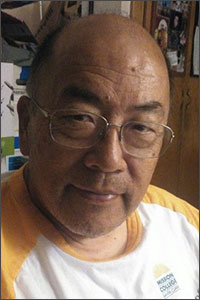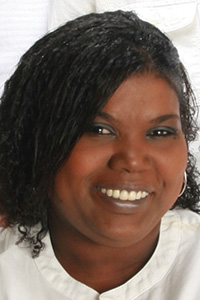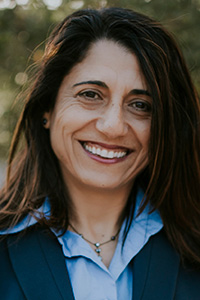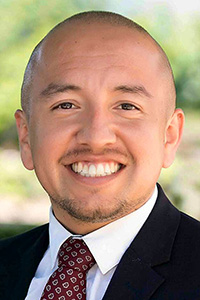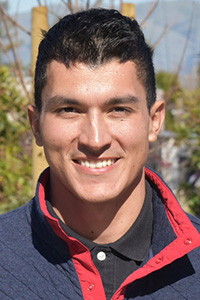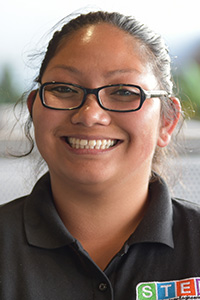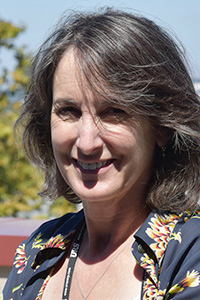Karl Ting
Faculty Emeritus, Mathematics
After 45 years of teaching, I still enjoy the classroom. I have learned what it was like as Chair, and that only reinforces my love of the classroom.
My advice to students: a number of obstacles have been removed; else, you would not be here, but others remain. The college is a family to support you as you set out to reach your educational and life goals. Please take advantage of the help and support offered by your instructors, counselors, and other services provided. We, as a college, cannot remove all obstacles, but we will continue to work with you. The bottom line is, you must do your part and accept the responsibility for your own education and goals. That is how my parents have raised me. I was fortunate to have their support as well as my extended family of aunts, uncles, and cousins. Mission College is also my family.
Here is my story:
I am Proud to be the Son of a Paper Son - An excerpt from Wikipedia
“Paper sons or paper daughters is a term used to refer to Chinese people that were born in China who illegally immigrated to the United States by purchasing fraudulent documentations which stated that they were blood relatives to Chinese Americans who had citizenships in the United States. Typically, it would be relation by being a son or a daughter. Many fled China because of war and poverty. Several historical events such as Chinese Exclusion Act and San Francisco earthquake of 1906 caused the illegal documents to be produced…With the Chinese Exclusion Act enacted in 1882, Chinese people were excluded from entering the United States from China unless they were of elite status. It was the only law in American history to deny citizenship or entry into the United States based upon a specific nationality. It stated that the coming of Chinese [laborers] would endanger the order of localities. As the American economy plummeted, problems of unemployment arose and blame was placed upon the Chinese for taking over jobs for low pay.”
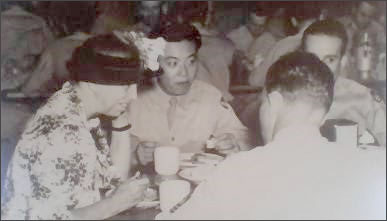 Karl Ting's father Tom Ting with Eleanor Roosevelt
Karl Ting's father Tom Ting with Eleanor Roosevelt
My father, Tom Ting, was a paper son. Seeking a better life, he immigrated to the United States, served in the Army Air Force during World War II, and had lunch with Mrs. Eleanor Roosevelt. He had the opportunity to sit next to the First Lady, and he knew he could surely succeed in a country where such things could happen to a paper son. Mrs. Roosevelt represented a government that offered hope for all, including, but not limited to, Americans coming out of the Great Depression, soldiers returning from war, and people who worked hard to be a productive part of the United States. My parents raised 7 children working 365 days a year at the family grocery store. My father said that we would never go hungry. My success and that of my siblings stems from the character and perseverance and support demonstrated by both of my parents. Three of my brothers became engineers. Another brother graduated with a degree in Fine Arts and used his artistic skills in the publishing field. He now creates computer art to support game apps. My sister served in the U. S. Army and then the U.S. Air Force; eventually she retired from the F.B.I. I became a teacher for 45+ years.
I began this story with family history because it is difficult to name any single act that made me the teacher I am today. If you recall the movie, “The Karate Kid,” a mentoring character, Mr. Miyagi, teachers a boy simple tasks as he washes his car. Mr. Miyagi demonstrates patience and understanding, and his “student” develops the way towards acceptance of who he is and a direction leading to his success in karate. In the daily routine of working “at the store,” I learned responsibility to family and sacrifice. Being the eldest in the family, I learned to teach. My parents instilled in me the responsibility to help others. Both my parents made many sacrifices and promoted education, and they were most proud when I became a teacher. I am successful if I can demonstrate the character and desire to make a difference to those I come into contact with. I believe that my success continues if I can see looks of bewilderment, grit, and eventual understanding within the eyes of my students.
Today, looking at a broader picture, I recognize that there is anxiety placed upon
those whose parents came to the United States illegally. Like my father, there were
excellent reasons. I would like to think that Eleanor Roosevelt valued his contribution
to our country. It is noteworthy that we, as a country, should understand that the history of the
United States is a history of immigrants. The world is full of borders that change dynamically through treaties, strife, and
war. People migrate for many reasons. As a society, it is how we support all that
makes us great.
Although I would have loved to have had lunch with the First Lady, Michelle Obama,
I was already given the inspiration to succeed by my upbringing. I am proud to be here at Mission, which recognizes the importance of all who attend,
and proud to be the son of a paper son.
Tricia Darrell
Program Specialist for Child Development Center
I am from a culture that deeply values family and education. We strongly believe it takes a village to raise a child and education is self-empowerment that can never be taken away.
My early childhood experiences was quite fruitful (maybe too fruitful) as I was given opportunities to enjoy things some of us may take for granted such as travelling, arts and just being a child.
Since, I had these experiences at a young age, I realized many children do not have the same opportunities as others. As I went through my life cycle, I recognized that young children must have positive early childhood experiences. After all, children will one day become adults in our society. Now, based on their early childhood experiences, what would that child be like as an adult?
During my early adolescent years, my combined household consisted my mother, aunt and uncle. Our Uncle Carl gave up his personal life in order to help raise his nieces and nephews. He frequently referenced the fact that we were immigrants so needed to educate ourselves as we may have some challenges along the way (all seven children earned college degrees). I had a very difficult transition from age thirteen to my late teen years due to battling with being Guyanese assimilating in the American culture. How do I live with my cultural values and beliefs in a society that has so many opportunities? One can literally do anything they chose and become anyone they wanted to be.
I knew from early on that I wanted to work with children but first, I needed to understand the full scope of child development. I took my first class at Leigh High School (back then we actually had arts in school) and thought this would be the start. At the age of 16, I was armed with a goal. I spent the next twenty-eight years educating myself (earning degrees in Child and Human Development starting with an AA to an MA), volunteering and working in various child development programs in Santa Clara County.
During my journey, I faced many challenges: being a woman of color and a woman from a different culture was extremely difficult. I was denied job opportunities in my field even though I was beyond qualified for the positions. I take pride in my many years of experience along with my education. I am one of the rare finds in my field that have these accomplishments. Sounds overly confident? Indeed, I earned it :) However, I never let the decisions of others impact my goal. I am well aware that my purpose is much greater than to reflect or internalize the negative assumptions of others. My journey continues…!
Based on my academic experiences, one of the most impactful classes in Early Childhood Education is Child, Family and Community. As human beings, we need to make connections to others. For example, taking some time to participate and become a part of a community can allow one to build on relationships. We can learn about culture and diversity in an informal setting and connect our knowledge and experiences to others. In my opinion this is an organic method for understanding human development: becoming a part of a community. Is this not educating self? Keep in mind, when we do not explore outside our "comfort zone" we tend miss opportunities to gain various perspectives about others
Raiida Thompson
Hispanic Serving Institution (HSI) STEM Transfer Alliance Coordinator
I started my life journey in the little town of Bethlehem! I immigrated to the US as a teenager, and began high school at age 13. Needless to say, my teenage years, up until I graduated from college, were incredibly challenging and filled with self-doubt. Straddling two contradictory cultures and worlds was not the savvy experience that it may sound like when you are actually living it as a young person. It’s only now, as a full-fledged adult, that I appreciate what I had gained from living in that space and having that perspective. Growing up in that environment, however, was a different reality as it was a source of great stress and often painful self-discovery as I tried to figure out where I belonged in this world, often feeling incredibly alone in this endeavor.
Even though high school was excruciatingly painful for me, I ironically found solace in two aspects of it: academics because school work was a familiar thing to me, and sports which I had used for escapism and sanity--everything else around me felt alien and isolating.
I have always known that I wanted an education and I’m really not sure where that desire came from. My parents didn’t finish their high school, and being a girl, education wasn’t really something my parents strongly encouraged me to pursue. I have 3 sisters, and none of them went to college. I have 2 brothers and only one pursued his college degree; I am the youngest in the family, and the only one to get a master’s degree. While in college, I never worried about what I will do when I graduated; all I cared about is learning as much as I can, and so I did!!!
My suggestion to students in order to feel more engaged and part of the community is to explore the social and/or academic clubs or groups that their schools have to offer; that’s a great way to find other individuals who may share the same interests, and with whom they can possibly build meaningful friendships. I would also suggest that they consider volunteering in their neighborhoods, or at their schools! No better way than to feel part of a community than to volunteer.
Mission College has so much to offer its students; I’m in awe every day of the wealth of resources available to our students, and so my advice to our wonderful students is to not shy away from reaching out, ask for help, take advantage of everything that the school has to offer them, and the biggest and most important thing is to not let fear and doubt stop them from forging ahead. This last one is probably the hardest to accomplish, but it’s so very possible!
Omar Murillo
Interim Vice President of Student Services
Born in Salinas, California, I was raised in an agricultural background where my immigrant parents worked the agricultural fields during my early childhood. I’m grateful that as hard as they worked, they always emphasized education. I remember asking my mom if she could enroll me in preschool when I noticed that my cousin was attending. My mom bravely inquired and even volunteered at the preschool and both parents began to take English classes. Eventually my mother became a preschool teacher.
One of the proudest and moving moments in my life was graduating at the SAME time with my father from CSU Monterey Bay! I completed a Liberal Studies major and a minor in Spanish with hopes at that time of becoming a teacher. During my undergraduate years, I felt like I was living in 2 entirely different yet parallel universes: Monterey Bay was a culture shock and an adjustment for the first year. I would come back to Salinas where friends were getting killed from gang violence and my family didn’t dare hang outside for fear of being harmed. In addition, I had a number of life experiences that highlighted the inequities and injustices that people face, especially people of color from lower socioeconomic backgrounds. These experiences empowered me at this point in my life to support equity efforts in our colleges and communities.
A regret of mine as an undergraduate student was not seeking out more mentors. I felt like I was part of the “invisible middle” – not high achieving enough nor low achieving enough to receive much attention. No one guided me to apply for college and I got into CSUMB at the last minute! I’m very grateful for the people who came into my life and provided me with access to the social and cultural capital that was needed for me to even consider a Masters and Doctoral program. After earning the Master’s degree, I came back to CSUMB, my alma mater, as a TRIO counselor and the theme ever since has been about giving back to the community. Music is an integral part of my life and some friends and I played an instrumental role in bringing a drumming/music program to children in the Salinas area. We raised $3K the first year implementing this program and the nonprofit called the Alisal Center for Fine Arts has grown into a multi-hundred thousand dollar organization where I currently serve as a Board member.
While pursuing my doctoral, I was still working a full-time job and attending classes at SFSU during the weekends. This taught me a great deal about prioritizing and organizing. After the doctoral, I wanted to begin making a difference at the community college level and landed at Mission College as the Director of our AANAPISI grants.
Along this amazing journey, I learned to seize opportunities as they come. Sometimes I still struggle with self-doubt but recognize how important it is for me to be in positions of leadership so that students - especially students of color – can see that they, too, can be in educational leadership positions in the future.
My advice to students: Turn your mistakes into learning experiences and take risks – you may not always fit into the “mold” of what the mainstream expects but keep up the good fight and remember to always apply self-love because that’s at the very core of success.
Marcelo Sanchez-Heredia
Hispanic Serving Institution (HSI) STEM Counselor
Coming from a family of educators I always knew I wanted to help others. The question for me was more about in what capacity do I want to help others? As the youngest sibling in my family there was never a shortage of help and support. As a result, from an early age I learned just how powerful it can be to have positive of role models in ones life.
Growing up, I considered numerous career paths: chef, pilot, firefighter, physical therapist, etc. Everything changed when I went with my mother to her work as a counselor at the City College of San Francisco. I have always been a visual learner and I got to observe my mother lead an orientation for new students and I even got to see her complete a student education plan in an appointment setting. It was really eye opening to see how a student can go from being stressed out and anxious about their future and not knowing what classes to take to having a tangible plan in hand and walk out of the office with confidence and even excitement. That is when I knew I wanted to be community college counselor.
After high school, I was truly lucky given that I had my mother as my personal counselor. I attended three community colleges: Chabot College, San Francisco City College and Las Positas College, which is where I earned most of the 60 units I needed to successfully transfer to UC Davis under the Transfer Admission Guarantee (TAG) program. After graduating from UC Davis with a BA in Psychology I took a semester off to apply to graduate schools and worked as a tutor in the AVID program. In spring 2014, I was accepted in Saint Mary’s College of California’s counseling program. Upon completing the program in spring 2016 I was able to get a job as an adjunct counselor at Las Positas College, one of the colleges I transferred from as an undergrad. A year later I was hired as the HSI STEM counselor at Mission College.
My advice to students is to find something you are truly passionate about and pursue it. What is the work you cannot not do? In doing so, you will find others who are also interested in whatever it is in the college and larger community. For me, this is playing Ultimate Frisbee. I started playing in high school, I played at Las Positas College and was a part of the club/team. I transferred to UC Davis and continued to play and now I have won three American Ultimate Disc League (AUDL) championships. I have won three national championships and two world championships. Along the way, I have had the opportunity to travel all over the world, meet countless others who share my love for Ultimate Frisbee. I have even been offered multiple jobs in other career fields by networking within the Ultimate Frisbee community in the Bay Area.
Work hard and take pride in your work. Regardless of what you do, you only get out as much as you put in. If you put in the bare minimum, you are going to get out the bare minimum. Employers can teach you on the job skills but they cannot teach work ethic and the growth mindset that comes with it. The club Ultimate Frisbee team I play for (San Francisco Revolver) has a team mantra which are all interconnected: Intensity, Humility, Discipline. Intensity is working hard in the moment. Humility is knowing that you will never be a finished product, you can always get better and learn. Don’t be complacent and foster the notion of lifelong learning. Listen to feedback you receive and act on it. Discipline is the willingness to put in the time to improve day in and day out, be it reading, studying, working out, etc. This mantra can be applied to nearly any academic and career goal.
Given all that I achieved up to this point in my life I still have tangible bigger goals for myself. This is important, and it is also important to ask yourself what does success mean to you? Is your definition of success truly yours? Has it been told to you be someone else? I can tell you that mine has changed since my time as an undergraduate student. It is also important to be able to ask for help. Remember the faculty and staff here at Mission College are here to help; it’s just a matter of asking.
Lusyna Narvaez
Growing up, I came from a large family that consisted of three brothers, five sisters, and both my mother and father. We always struggled for money and often had assistance from the government with food and housing. I can remember going hungry on some days.
With all of the hardships my family and I endured, the one thing that my father has said to my siblings and me was just how important education is. He would stress to us how difficult it was to be able to come to this country because of the Vietnam War and how he wants his children to be able to have the opportunity to be successful. I just kept hearing "education, education, education" running in my mind. Even with this mantra, I struggled immensely in school, especially with math. I just could not do it. I came to Mission in 2007 as a fulltime student, not really knowing what I wanted to do with my life. After a few years, I stopped going, because I preferred to work to make money.
Yes, I was making money, but I hated my job and started to resent myself, because I knew I could do more. After I got married in 2012, I re-enrolled back into Mission and went with the mentality to not give up. I received my Associate’s degree in 2015 in Early Childhood Education (yes, I conquered Math)! I also happened to be pregnant at the time. I feel that because of my daughter, I had a need to keep going, and so I did. I transferred to Pacific Oaks College and obtained my BA in Early Childhood Education in December of 2016, and from there, I applied for my Master’s degree also with Pacific Oaks and just finished in July of 2018 in Leadership in Education and Human Services. I wanted to be someone my daughter can look up to. I want her to see that no matter what she is going through, she can achieve anything in her life.
My favorite quote to live by is from Mahatma Gandhi: "Be the change you wish to see in the world." This saying has gotten me through some tough times, especially because giving up was not an option for me. I would suggest for students to embrace any new changes that comes their way. To be comfortable with the uncomfortable. Go at your own pace. You are not in a race with other people. Success takes time, so give yourself the time that you deserve. Life can be tough, but remember that you are tougher.
Kate Disney
Engineering Faculty
I grew up with a lot of older cousins and siblings who I perceived as incredibly successful and smart, so much so that I found most of them intimidating. Being on the young end of this extended family, I never thought I would catch up to these confident and successful relatives.
No matter how old I got, these family members were always ahead of me. In high school I realized I was good at math and science. This was something new to my family; no one had ever excelled in science and math. I was very excited about my newfound talent and I was determined to work hard and cultivate it.
After high school I attended UC Davis. Lacking confidence, I applied to Davis as an “undeclared” major. When I got to Davis and inquired about declaring engineering as a major I was told I would have to take the first year of coursework and earn a particular GPA. This scared me and I thought I wouldn’t be able to do it. I remember asking my sister what I should do, and her response was “It doesn’t matter how smart you are, the only thing that will matter are the results you are able to achieve.” That advice turned me inward. I no longer compared myself to others. My focus was simply on learning the material and solving as many problems as I had time for so I could ace the tests. School for me became a fun game and I ended up making friends who took a similar approach to school. I attribute my successes to not only my hard work but to all my friends who helped me learn and get through school. School is a “team sport”!
My advice for our students: Work hard, stay “in the game,” put in a lot of time, and find good friends who will support you.


